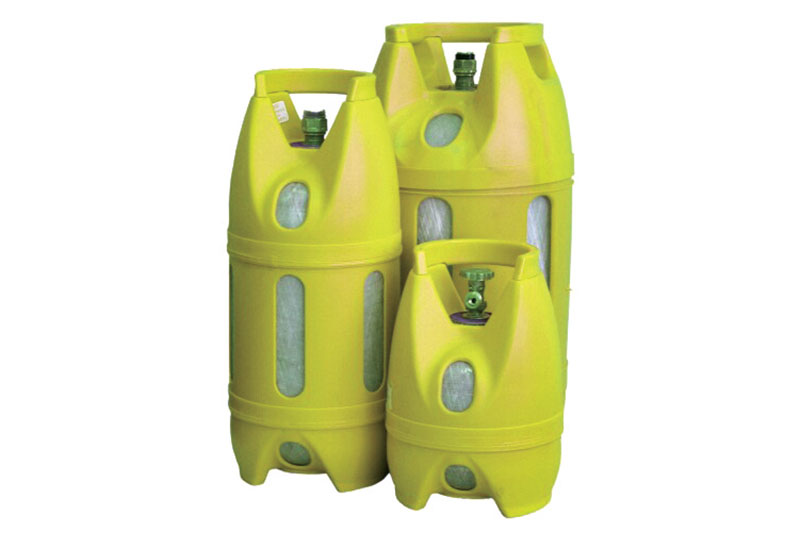Non-explosive Composite LPG cylinders now available in the market
Traders have started selling non-explosive Composite Liquefied Petroleum Gas (LPG) cylinders in the market from Sunday.
A private trading company — Classic Trade International — has introduced such high-tech LPG cylinders in Nepal for the first time. Composite cylinders are said to be much safer than the metallic LPG cylinders.
Following rising cases of explosion of the metallic LPG cylinders in the country, the state-owned Nepal Oil Corporation (NOC), in October last year, had authorised private traders and LPG bottlers to sell composite cylinders in the market.
According to the officials of Classic Trade International, the new safety-featured LPG cylinder will cost maximum of Rs 12,000 per cylinder (filled with gas) depending on the capacity of the cylinder.
Currently, the company has rolled out composite cylinders of three variants — of five kilograms, 14 kilograms and
19 kilograms.
The Nepal Bureau of Standard and Metrology (NBSM) has also authorised the trading of composite cylinders in
Nepal.
“These composite cylinders, which we have imported from India, are International Organisation for Standardisation (ISO) certified and are manufactured prioritising safety measures,” Krishna Shrestha, chairman of the company said, adding that use of composite cylinders will reduce the risk of explosion.
Composite cylinders are made with helically woven fibre and resin, making them non-explosive even when exposed to fire. Composite cylinders are said to be much safer especially because these cylinders, rather than exploding in case of leakage of gas, will burn unlike metallic cylinders.
Similarly, these cylinders are said to be more portable when compared to the conventional metallic cylinders.
Moreover, the wall of the composite cylinders is transparent and the level of gas is clearly visible.
Meanwhile, NOC plans to gradually replace metallic cylinders in the domestic market with the composite cylinders. NOC’s Managing Director Gopal Bahadur Khadka said that composite cylinders should be promoted despite being costlier as they pose lesser threat to consumers.
“We will soon make it mandatory for domestic LPG bottlers to ensure that at least five per cent of the total cylinders they have been supplying in the market comprise of composite gas cylinders,” Khadka said.
Currently, there are 53 LPG bottling companies in the country. These companies are supplying more than eight million metallic cylinders in the market.






